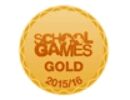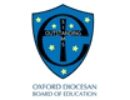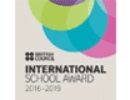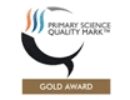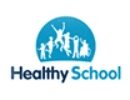Literacy
What does Literacy look like?
INTENT
At Brill School, we believe that all children are entitled to learn to read and write so as to be ready for the challenge of today and prepared for tomorrow. They have the right to explore an enriched and exciting Literacy curriculum which provides purposeful and meaningful opportunities to write, embracing every child’s uniqueness and nurturing their creativity. Every child should develop a life-long love of reading, appreciating the value of literature and its power to transport, educate and heal. Every Literacy unit aims to immerse the children in a new world of high-quality literature, and our approach to teaching reading not only should enable all children to become fluent readers, but also aims to develop their background knowledge, expand their vocabulary and broaden their understanding of text models, story schemes and genres. They are then equipped to explore and enjoy a broad range of literature more independently, efficiently and effectively. We aim to develop children’s speaking and listening skills so that they feel confident and competent in communicating their ideas through a range of different experiences and for a variety of purposes. We believe that children need to develop a secure knowledge-base in Literacy, which follows a clear pathway of progression as they advance through the primary curriculum. We believe that a secure basis in literacy skills is crucial to a high-quality education and will give our children the tools they need to engage fully as a member of society.
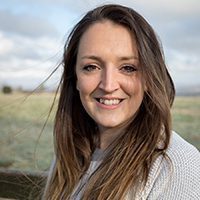
Head of Teaching & Learning, Senior Leadership Team
|
|
Literacy Coordinator
|
IMPLEMENTATION
At Brill School we aim to ensure that all children can:
- read easily, fluently and with good understanding
- develop the habit of reading widely and often, for pleasure, fluency and knowledge
- acquire a wide vocabulary, an understanding of grammar and knowledge of linguistic conventions for reading, writing and spoken language
- appreciate our rich and varied literary heritage
- write clearly, accurately and coherently, adapting their language and style in and for a range of contexts, purposes and audiences
- use discussion in order to learn; they should be able to elaborate and explain clearly their understanding and ideas
- be competent in the arts of speaking and listening, making formal presentations, demonstrating to others and participating in debate.
These aims are embedded across our English lessons and the wider curriculum. Learning is enriched through a sequence of high-quality age-appropriate texts which include fiction, non-fiction and poetry. These texts are closely linked to our topic-based curriculum so as to purposefully expand children’s background knowledge and vocabulary.
We use each high-quality texts to create opportunities to:
- engage the children into exciting stories
- develop speaking and listening skills as well as empathy with characters through drama activities
- discuss ideas and themes and, from this, develop curiosity beyond the text
- draw inspiration from stories and poetry to create their own poetic forms
- write descriptively and succinctly for different purposes
- develop reading fluency and comprehension with a focus on expanding background knowledge, vocabulary and independent reading strategies and skills
- develop grammar and punctuation knowledge and understanding to use and apply across the wider curriculum
- explore the writing structure and features of different genres
- identify the purpose and audience
- plan and write a piece of writing purposefully, before evaluating the effectiveness of writing by editing and uplevelling.
IMPACT
The intended impact of our Literacy curriculum will be to nurture children who are enthusiastic, confident and independent readers, writers and speakers who take pride in and enjoy showcasing the development and progression of their knowledge and skills. At the end of their Brill journey, our children are able to read fluently for both pleasure and knowledge, debate their ideas, take risks in their writing and have the skills to think creatively, curiously and boldly.
Creating an environment that nurtures and encourages a love of books, is an essential starting point in a child’s reading and writing journey. From our pupils’ first day at Brill, they are immersed in an atmosphere of story-telling which supports their development as early readers and writers. As our pupils continue their time at Brill, they will experience Literacy lessons centred around a carefully chosen text that supports and deepens their literary skills. Class books are chosen to engage our pupils, broaden their experiences and model a variety of excellent writing styles. To further support our pupils’ development as writers, our units of work follow an ‘Edit and Improve’ cycle which allows students time to reflect upon and evaluate their writing. In Key Stage 1 we use 'Bug Club' as our main reading scheme, which links with our phonics progression.
At school, your child will be using their phonics knowledge to become a confident speller. All year groups have daily Spelling, Punctuation and Grammar sessions during which new words, grouped together by common spelling patterns, are investigated and practised. We make sure children have plenty of time to practise and apply their new vocabulary knowledge in their English lessons. We also encourage dictionary and thesaurus use as well as other independent strategies to ensure children feel confident to take responsibility for expanding their own vocabulary.
We understand that weekly home spelling lists and tests is not always a model of learning that suits all children, nor does it always produce confident, successful spellers and writers in the long run. We use regular formative assessment strategies to closely monitor your child's progress, and adapt our teaching strategies accordingly. Our overall aim is to expand a child’s vocabulary and children learn to spell by actively exploring, reading and writing new words each week. The proof is ultimately in the children's writing, which we love to see full of ambitious language which children are excited to use!
|
|
Literacy Policy
|
